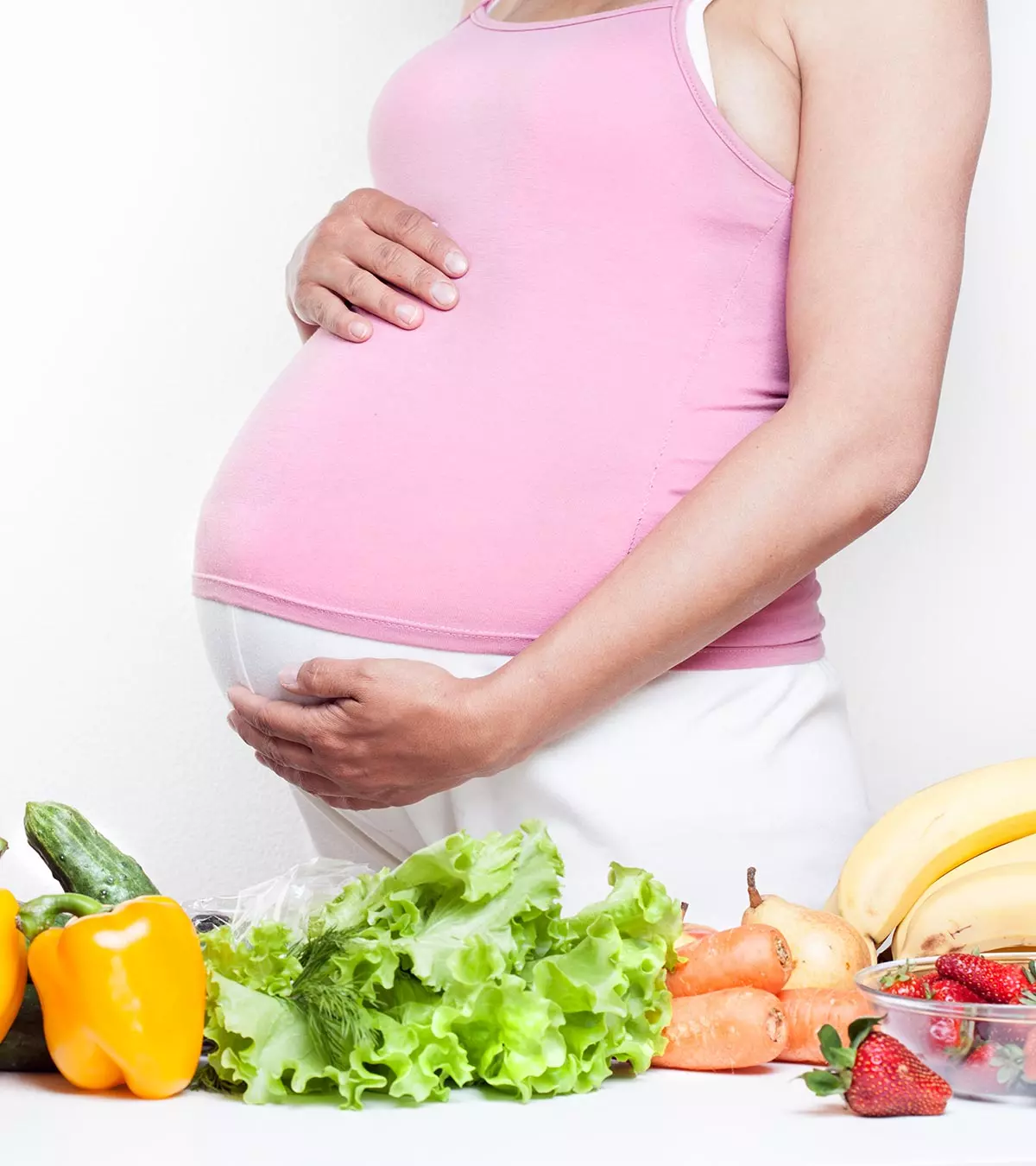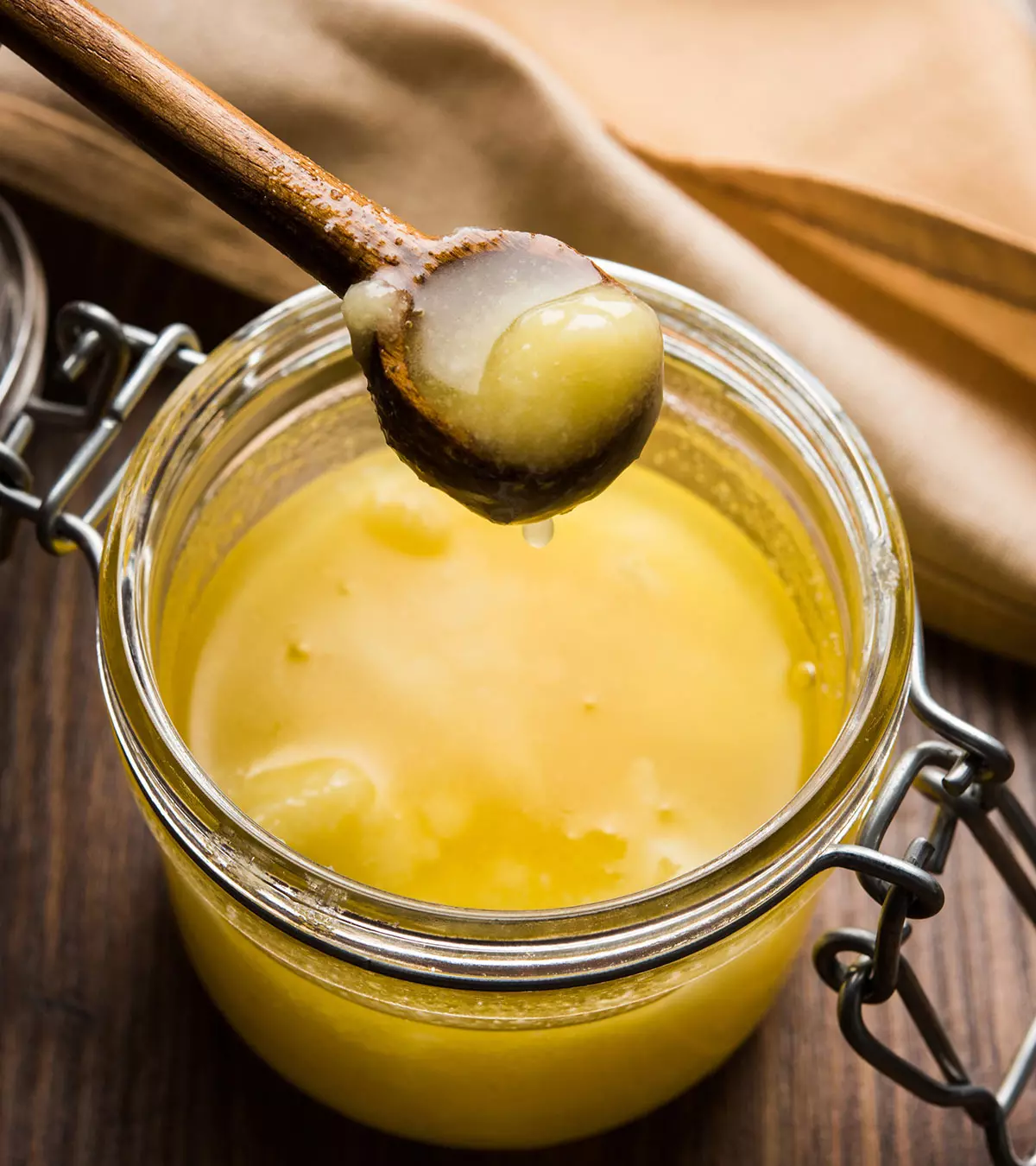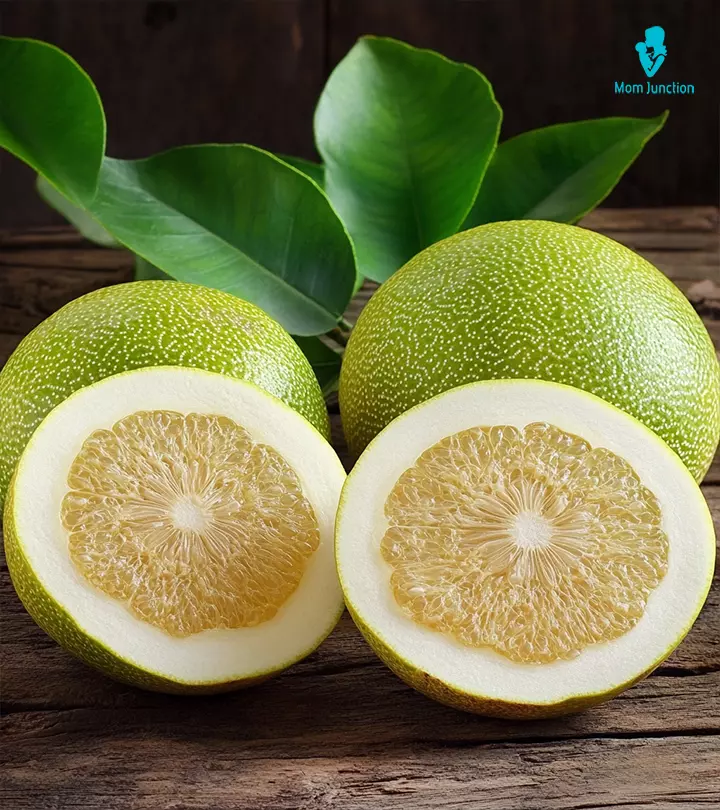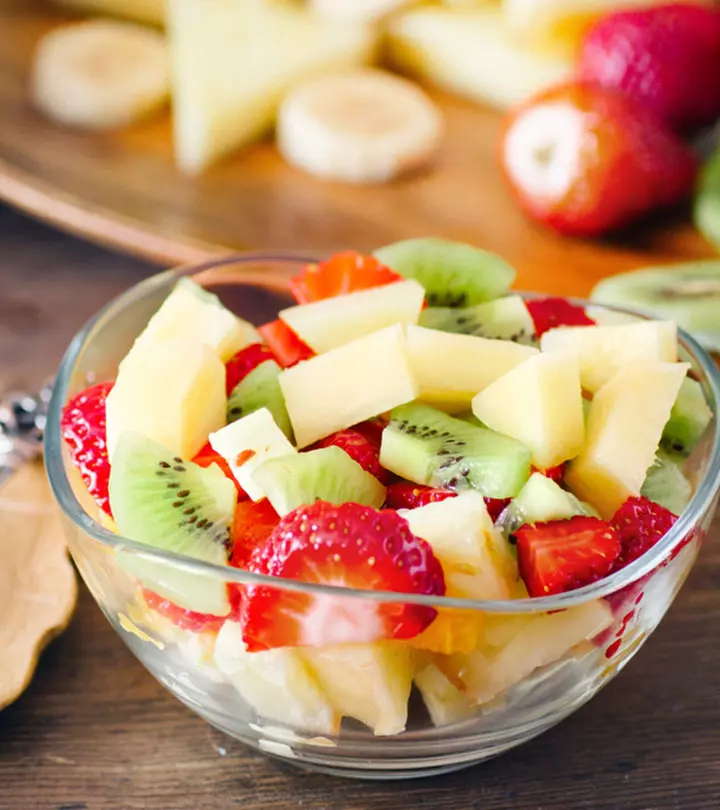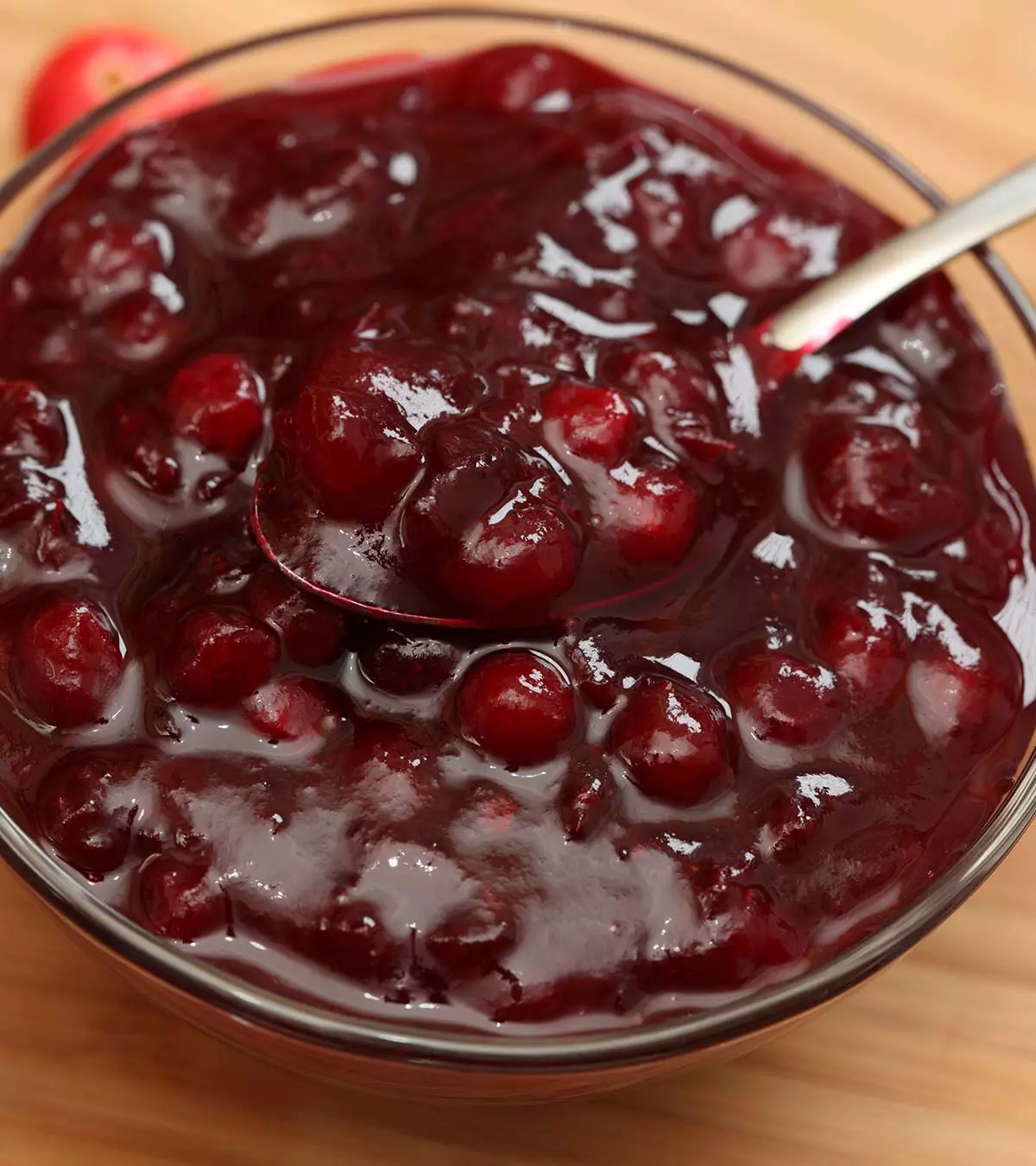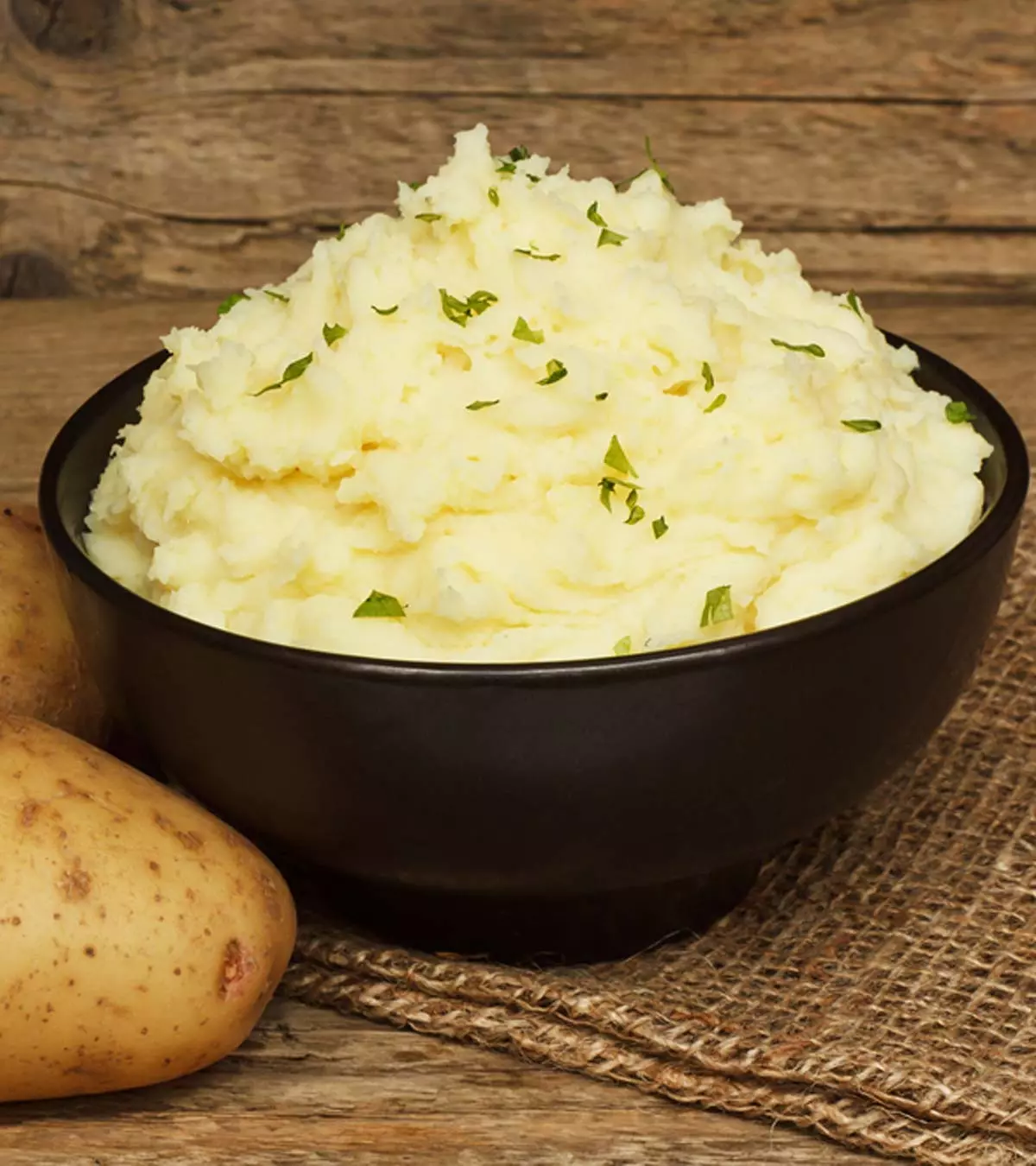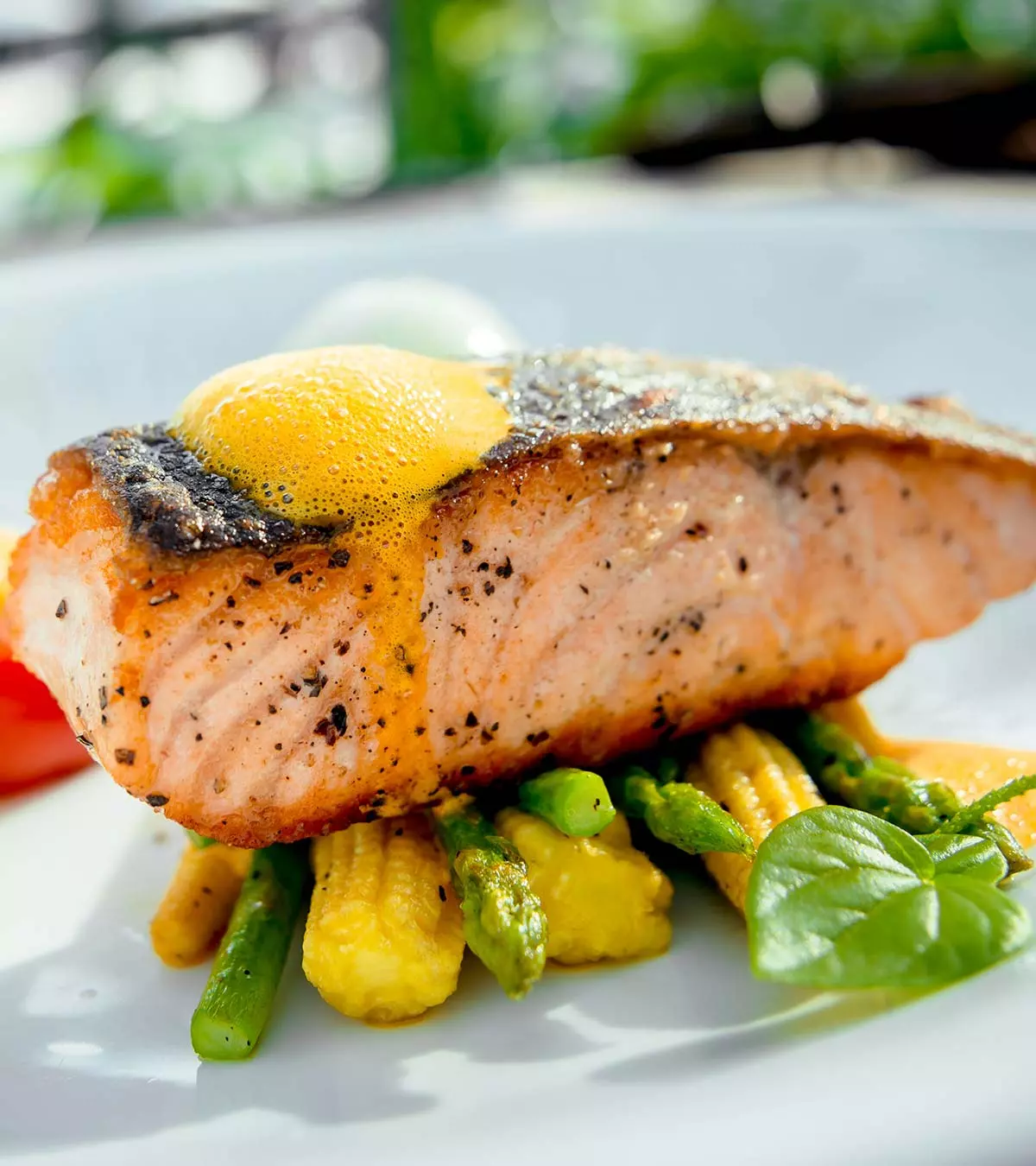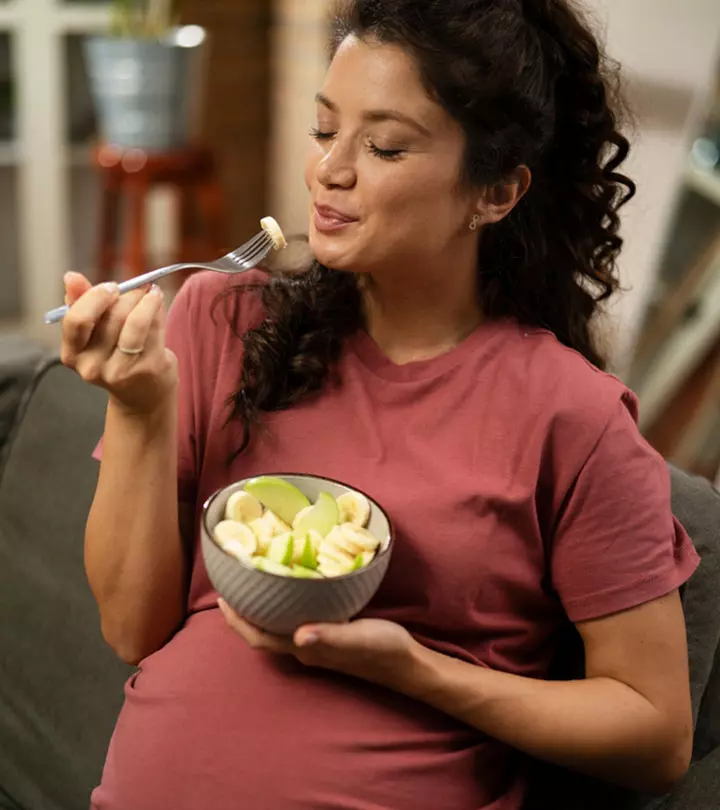
Image: Shutterstock
In the 8th month of your pregnancy, your body undergoes some more changes as it prepares to deliver your baby soon. Hence, you may experience frequent bouts of fatigue and get tired easily. To cope with these physical and hormonal changes, ensure you follow a nutritious 8th-month pregnancy diet.
Read this article to learn more about the physical changes you can expect in the 8th month, what foods you should include in your diet, and what you should avoid at this time. In addition, this post offers information on the food items that will help you get the necessary nutrients, such as vitamins, minerals, and fiber, from the food you consume.
Key Pointers
- Foods rich in micro and macronutrients are essential for healthy fetal growth and development during the 8th month of pregnancy.
- It is recommended to consume foods such as leafy vegetables, nuts, egg yolk, dairy products, and dry fruits that contain high amounts of iron and calcium.
- Foods such as cereals, whole grains, lean meat, and fresh fruits and vegetables help provide ample protein, fiber, and carbohydrates.
- It is best to limit the consumption of oily and spicy food to avoid digestive problems such as heartburn and reflux during this month.
- It is advised to avoid high-fat dairy products, fish with high mercury content, caffeine, and undercooked meat or poultry.
- A healthy diet and sufficient hydration help the expecting mother combat fatigue and body aches.
Changes In The 8th Month
As you enter the 8th month of your pregnancy, your uterus gets enlarged and creates a lot of pressure on your stomach. This results in some of the common discomforts you may face during this stage, such as refluxes and heartburns. Eating small meals throughout the day, eating without rushing and not gaining too much weight can help in decreasing these symptoms (1). A healthy diet and lifestyle is important during this stage to prevent body aches and pains as well as fatigue. It will also help you immensely in giving birth to a strong and healthy baby.
What Foods Should You Include In Your 8 Month Pregnancy Diet?
During the third trimester of your pregnancy, you gain the maximum amount of weight and your body gets heavier. Your nutritional needs also increase to support the baby’s rapid growth, making it essential to eat foods rich in vitamins, minerals, and energy. This is exactly why you should eat a healthy diet and combine it with light exercise, such as walking. Here are some foods that you can include in your 8th month of pregnancy diet.
1. Foods rich in vitamins and minerals
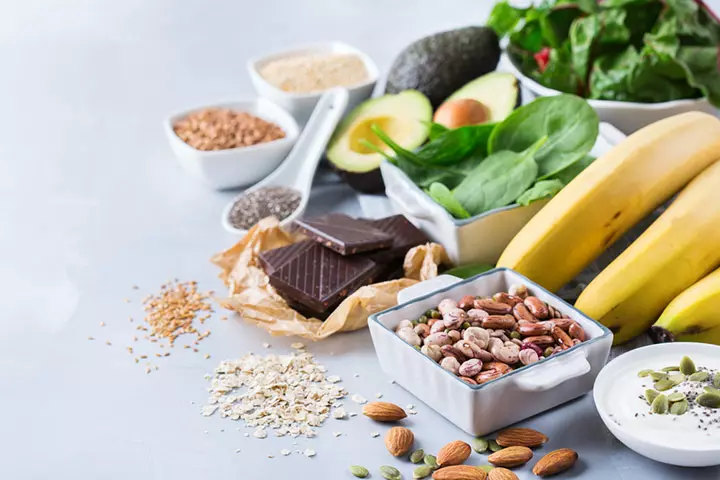
During the last months of your pregnancy, it is important for you to eat foods that are rich in folate, zinc, iron, and calcium. Blood loss is a part of delivery and you need to make sure that you include enough iron in your diet (2). Calcium will keep your and baby’s bones strong so include that too. You should have:
- Green leafy vegetables
- Nuts
- Apricots
- Dried fruit and dates
- Egg yolk
- Lean meat
- Fish
- Dairy products
- Fruit such as bananas and pomegranate
- Whole grains
- Legumes
2. Foods rich in carbohydrates, proteins, and fats
Put a “Do not eat” chart on your fridge. That way it will be easier for you to know what you require to eat at which time of the day.
For protein
- Beans
- Lean meat
- Egg whites
- Tofu
- Fish
- Chicken breast
- Milk
- Yogurt
- Soy milk
For carbohydrates
- Potatoes
- Whole grains
- Cereals
- Sweet potatoes
- Legumes
- Nuts
- Berries
- Watermelons
For Fats and Omega-3 Fatty Acids
- Eggs
- Nuts
- Fish
- Peanut butter
3. Foods rich in fiber
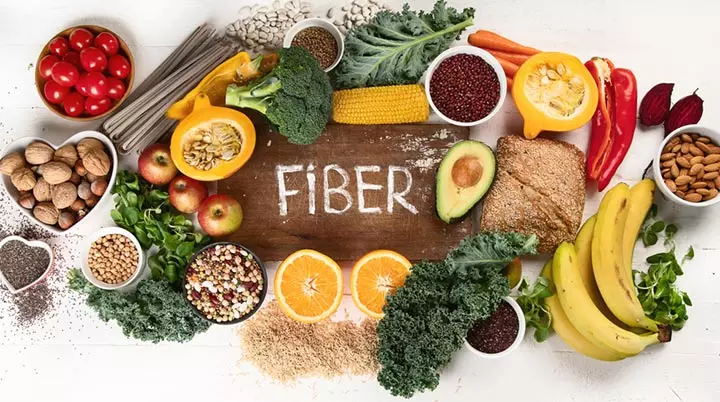
High-fiber foods are important during this stage of your pregnancy. These foods have a high nutritive value. They also contain the right amount of fiber that you need in the last months of your pregnancy. You should have:
- Corn
- White beans
- Black beans
- Avocados
- Whole wheat pastas
- Brown rice
- Whole wheat breads
- Cauliflowers
- Broccoli
- Leafy green vegetables
- Celery
 Point to consider
Point to considerWhat Does A Sample Diet Plan For The 8th Month Of Pregnancy Look Like?
The following table depicts a sample diet chart for pregnant women in the 8th month of pregnancy. While recommended foods are generally healthy, your doctor is the best person to approve your choices based on your maternal health.
| MEAL | SAMPLE MENU |
|---|---|
| Breakfast: A well-balanced breakfast can help deliver crucial nutrients like folate, iron, and calcium that are pivotal for averting neural tube defects. |
OR
|
| Morning Snack: Wholesome mid-morning snack helps avoid consuming junk. |
OR
|
| Lunch: Lunch assumes a crucial role in furnishing an array of nutrients essential for fetal growth and maternal well-being. |
OR
|
| Evening Snack: A strategically timed evening snack proves beneficial for expectant mothers, addressing evening hunger pangs and regulating blood sugar levels effectively. |
OR
|
| Dinner: A balanced and filling dinner can help fulfill all nutritional requirements and will ensure a good night’s sleep. |
OR
|
What Foods To Avoid During The 8th Month Of Your Pregnancy?
During this stage of your pregnancy, there are certain foods that you should avoid to prevent excess weight gain and the discomfort of some of the symptoms that you go through. Eating nutritious foods is always important throughout your pregnancy to benefit you and your child. Here are some of the foods that you should omit from your daily diet during 8th month of pregnancy (3):
1. Coffee

As your due date approaches, you will find yourself constipated which can be really uncomfortable. One way to reduce this symptom is to significantly lower your daily intake of this beverage. You should also lower your intake of caffeinated beverages such as aerated soft drinks, etc.
 Be watchful
Be watchful2. Unpasteurized milk
You should avoid unpasteurized goat, cow and sheep milk. Goat’s milk is very risky during pregnancy as it comes with a high risk of toxoplasmosisiParasitic infection often caused by consumption of contaminated raw meat or exposure to cat feces .
3. Shark, marlin, and swordfish
These types of fish have high levels of methylmercuryiToxic form of mercury found in fish, which, when consumed in large amounts, may cause severe health issues during pregnancy which can be detrimental to your unborn baby’s nervous system. Opt for fish that are low in mercury, such as anchovies, sardines, and salmon.
4. Soft cheese

Cheese that have been ripened with mould, such as Brie, as well as cheese that has blue veins, such as Danish Blue, can often contain listeria which is why they should be avoided during pregnancy. According to the US Centers For Disease Control And Prevention (CDC), expectant mothers are ten times more susceptible to Listeria infection than the general population. So, if you crave cheese during pregnancy, opt for hard ones like cheddar.
5. Pate
It is best to avoid pates of all types. They could contain listeria which causes listeriosisiFood-borne bacterial infection in pregnant women characterized by diarrhea and fatigue, and flu-like symptoms . Although listeriosis causes symptoms that are flu-like in mothers, they can be fatal for unborn babies. It can cause still-birth, miscarriage and serious illnesses when a baby is born.
6. Raw or undercooked eggs
Eggs that have been lightly cooked or raw should be avoided during pregnancy. There is a high risk of them containing salmonella bacteria which is known to cause food poisoning.
7. Raw shellfish
You should avoid raw shellfish as well as raw fish dishes such as sushi during pregnancy. This is due to the high risk of food poisoning that these foods can cause.
8. Liver and cured meats
It is best to avoid liver during this stage of your pregnancy. In fact, experts say that you should avoid liver throughout your pregnancy. Cured meats like salami and ham should also be avoided as they increase the risk of toxoplasmosis and listeriosis.
 Quick tip
Quick tip9. Alcohol and tobacco

These should be avoided for reasons well-known to us all. Their consumption can delay the growth of the baby, cause various structural abnormalities, and lead to pregnancy complications such as preeclampsiaiA pregnancy disorder characterized by high blood pressure, water retention, and protein content in urine and preterm pain. Moreover, the baby could also be born with health complications.
Frequently Asked Questions
1. Which fruit gives color to the baby during pregnancy?
Certain fruits, such as jackfruits and pomelo, are often avoided during pregnancy since it is believed they may affect a baby’s complexion. However, it is not proven through research and hence cannot be confirmed (4).
2. What foods make labor easier?
Foods such as dates and raspberry leaf tea may induce and ease labor by helping dilate the cervix and toning the womb, respectively. However, you must first consult your Ob/Gyn to check their efficacy and safety to prevent complications (5).
Pregnant women have different calorific requirements in each trimester. Generally, in the first trimester, they need around 1800 calories per day, in the second, they need 2200 calories per day, and in the third, they need 2400 calories (9).
4. How much water should an 8th-month pregnant woman drink every day?
Irrespective of the month, a pregnant woman during pregnancy should consume about 8-12 cups of water every day (10).
5. Is it safe to consume seafood during the 8th month of pregnancy?
The FDA recommends 2-3 servings of fish or seafood with low mercury content. However, do not consume more than the recommended amount as high mercury content could be harmful to the brain and nervous system (11).
6. Can an 8th-month pregnancy diet help prevent gestational diabetes?
Gestational diabetes usually occurs in the 24th week of pregnancy. Therefore, a healthy diet since the start of the pregnancy is considered ideal for the prevention of gestational diabetes. Nevertheless, you should pay more attention to the food you eat if you are diagnosed with gestational diabetes already (12).
7. Is it necessary to take supplements during the 8th month of pregnancy?
Mothers with food allergies, pregnant women who do not eat nutritious meals, or ones who are vegetarians, might need to take supplements throughout their pregnancy to give the necessary nutrition to the fetus. Therefore, consult with your doctor to know about the necessary supplements (13).
Ensure to include safe and healthy foods in your 8th-month pregnancy diet and consume the right quantity and quality of food as it will directly impact your fetus. It would be best to eat a diet with a good balance of healthy fats, protein, carbs, folate, fiber, and vitamins to facilitate proper fetal development. In addition, during the 8th month, it is ideal to avoid spicy foods, caffeine, alcohol, and undercooked eggs or meat, as these foods might cause heartburniA common discomfort caused due to reflux of stomach contents to the food pipe, marked by a burning sensation in the chest and increase the risk of complications during pregnancy. Hence, be mindful in picking the healthiest nutritious foods to keep yourself and the baby healthy and safe.
Infographic: Foods To Include And Avoid In Your 8th-Month Pregnancy Diet
As you enter the 8th month of pregnancy and get closer to your due date, ensure to eat all the essential nutrients to support your baby and prepare your body for labor. The infographic below includes a list of safe and unsafe foods for the 8th month of pregnancy to help you stay nourished.

Illustration: Momjunction Design Team
Illustration: 8 Month Pregnancy Diet – Which Foods To Eat And Avoid?

Image: Stable Diffusion/MomJunction Design Team
References
- 8 Third trimester pains and how to deal with them.
https://utswmed.org/medblog/third-trimester-discomfort/ - Iron and iron deficiency anemia.
https://nutrition.ucdavis.edu/sites/g/files/dgvnsk426/files/content/infosheets/fact-consumer-ironandanemia.pdf - Foods to Avoid During Pregnancy.
https://americanpregnancy.org/healthy-pregnancy/pregnancy-health-wellness/foods-to-avoid-during-pregnancy/ - Lakshmi G (2013); Food Preferences And Taboos During Ante-Natal Period Among The Tribal Women Of North Coastal Andhra Pradesh.
https://citeseerx.ist.psu.edu/document?repid=rep1&type=pdf&doi=94ed95c57944ee604653dedfa89b3b93057dcd27 - Can anything bring labor on?
https://www.tommys.org/pregnancy-information/giving-birth/labour-and-birth-faqs/can-anything-bring-labour - Pregnancy Nutrition.
https://americanpregnancy.org/healthy-pregnancy/pregnancy-health-wellness/pregnancy-nutrition/ - Can I Still Drink Coffee While I’m Pregnant?
https://kidshealth.org/en/parents/preg-caffeine.html#:~:text=Studies%20show%20that%20getting%20more,a%20baby’s%20growth%20and%20development - Foods to avoid in pregnancy.
https://www.nhs.uk/pregnancy/keeping-well/foods-to-avoid/ - Eating right during pregnancy.
https://medlineplus.gov/ency/patientinstructions/000584.htm - How much water should I drink during pregnancy?
https://www.acog.org/womens-health/experts-and-stories/ask-acog/how-much-water-should-i-drink-during-pregnancy#:~:text=During%20pregnancy%20you%20should%20drinkamniotic%20fluid%20around%20the%20fetus. - Eating Seafood During Pregnancy
https://americanpregnancy.org/healthy-pregnancy/pregnancy-health-wellness/eating-seafood-during-pregnancy/ - About Gestational Diabetes.
https://www.cdc.gov/diabetes/about/gestational-diabetes.html?CDC_AAref_Val=https://www.cdc.gov/diabetes/basics/gestational.html - Vitamins and other nutrients during pregnancy
https://www.marchofdimes.org/find-support/topics/pregnancy/vitamins-and-other-nutrients-during-pregnancy
Community Experiences
Join the conversation and become a part of our nurturing community! Share your stories, experiences, and insights to connect with fellow parents.
Read full bio of Dr. Neha Singh
Read full bio of Jessica Albert
Read full bio of Swati Patwal
Read full bio of Dr. Joyani Das






